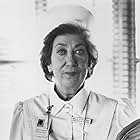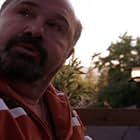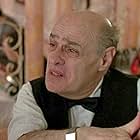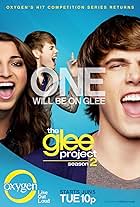Anxious about his future after high school, a 19-year-old Italian-American from Brooklyn tries to escape the harsh reality of his bleak family life by dominating the dance floor at the local... Read allAnxious about his future after high school, a 19-year-old Italian-American from Brooklyn tries to escape the harsh reality of his bleak family life by dominating the dance floor at the local disco.Anxious about his future after high school, a 19-year-old Italian-American from Brooklyn tries to escape the harsh reality of his bleak family life by dominating the dance floor at the local disco.
- Nominated for 1 Oscar
- 6 wins & 14 nominations total
Sam Coppola
- Dan Fusco
- (as Sam J. Coppola)
Robert Costanzo
- Paint Store Customer
- (as Robert Costanza)
- Director
- Writers
- All cast & crew
- Production, box office & more at IMDbPro
Storyline
Did you know
- TriviaJohn Travolta had worked hard on the "You Should Be Dancing" sequence and threatened to quit the film when the studio suggested it should be shot in close-up instead of full-body.
- GoofsWhen Tony is walking with Stephanie to get coffee, a girl's scream is heard. A group of girls was watching them film the scene and they would scream when they saw John Travolta.
- Quotes
Tony Manero: Would ya just watch the hair. Ya know, I work on my hair a long time and you hit it. He hits my hair.
- Crazy creditsWhen the title appears on screen, it is done in the style of a neon sign. The word "Fever" is blinking.
- Alternate versionsIn 2002, AMC (American Movie Classics) showed a new print of 'Fever' with scenes not in the theatrical release nor home version:
- 1) After Tony's first night at the disco, he and his buddies cruise the bridge, where the song 'Jive Talkin'' can be heard in the background. He gets out of the car, and begins to caress the bridge's structure with his fingertips.
- 2) After asking Doreen to dance, Tony and Doreen dance to 'Disco Duck'.
- 3) Tony takes Stephanie back to her Bay Ridge home, where they kiss in the car.
- 4) Tony signs for a telegram that tells his father has been asked to go back to work.
- 5) After getting out of the subway, Tony buzzes Stephanie's apartment building.
- ConnectionsFeatured in Les rendez-vous du dimanche: Episode dated 16 April 1978 (1978)
- SoundtracksHow Deep Is Your Love
Courtesy of RSO Records, Inc., Stigwood Music, Inc. (Unichappell Music, Inc.) BMI and Bros. Gibb, B.V.
Written by Barry Gibb, Robin Gibb and Maurice Gibb
Performed by The Bee Gees
Featured review
While the movie is more apt to be recalled for its impact on American pop culture, few who watch the movie will ever see beyond the admittedly fantastic dance sequences. As a result, many people might never recognize Saturday Night Fever as perhaps one of the best movies ever made about class struggles among white ethnics.
While his quick study under Denny Terrio for those dance sequences showed a great deal of determination, Travolta's Tony Manero shines in so many other way. The looks of embarrassment and exasperation that his character expresses when confronted with the possibility of working in a Bay Ridge paint store all of his life, or the prejudice and regional chauvinism of his friends, or the behavior of his friends at White Castle or his initial inability to express himself to Stephanie in any way that might impress her, all of these and more contribute to a fully realized character.
While Tony's friends idolize him, the movie never really does, but it does allow empathy for his plight, because even Tony realizes that he is virtually trapped by the current conditions of his existence. While much might be made of the homophobia, racism, and misogyny of the protagonist and his friends, these things are never excused and the movie goes to some lengths to express Tony's own recognition that these are shortcomings in not only his character, but those borne of a provincial mentality which he desperately longs to escape.
Forget those who call this a musical. While the music is an intricate part of the film and setting, Travolta's performance is what sets this film apart.
While his quick study under Denny Terrio for those dance sequences showed a great deal of determination, Travolta's Tony Manero shines in so many other way. The looks of embarrassment and exasperation that his character expresses when confronted with the possibility of working in a Bay Ridge paint store all of his life, or the prejudice and regional chauvinism of his friends, or the behavior of his friends at White Castle or his initial inability to express himself to Stephanie in any way that might impress her, all of these and more contribute to a fully realized character.
While Tony's friends idolize him, the movie never really does, but it does allow empathy for his plight, because even Tony realizes that he is virtually trapped by the current conditions of his existence. While much might be made of the homophobia, racism, and misogyny of the protagonist and his friends, these things are never excused and the movie goes to some lengths to express Tony's own recognition that these are shortcomings in not only his character, but those borne of a provincial mentality which he desperately longs to escape.
Forget those who call this a musical. While the music is an intricate part of the film and setting, Travolta's performance is what sets this film apart.
- notarepublican
- Jun 16, 2003
- Permalink
Details
- Release date
- Country of origin
- Languages
- Also known as
- Fiebre de sábado por la noche
- Filming locations
- 86th Street, Brooklyn, New York City, New York, USA(opening sequence: Tony's Walk)
- Production companies
- See more company credits at IMDbPro
Box office
- Budget
- $3,000,000 (estimated)
- Gross US & Canada
- $94,213,184
- Opening weekend US & Canada
- $3,878,099
- Dec 18, 1977
- Gross worldwide
- $237,113,184
- Runtime1 hour 58 minutes
- Color
- Sound mix
- Aspect ratio
- 1.85 : 1
Contribute to this page
Suggest an edit or add missing content










































